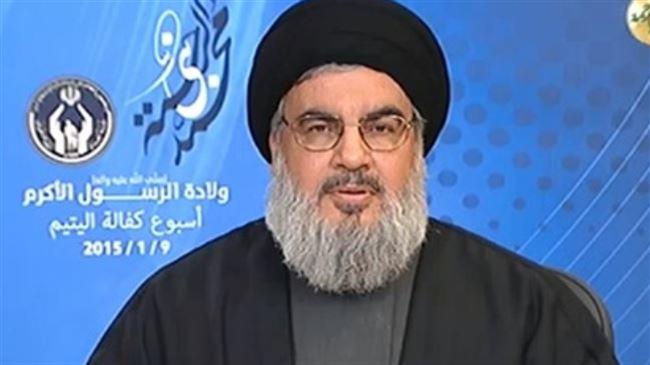 Hezbollah�s Leader Seyyed Hassan Nasrallah[/caption]
Hezbollah�s Leader Seyyed Hassan Nasrallah[/caption]Two main messages stand out from Nasrallah's Friday address, but what the Hezbollah leader did not say: Will Iran accept last week's attack as adequate response for death of general?
The�speech�on Friday�in Beirut by Hezbollah leader Sheikh Hassan Nasrallah was another step in the exchange of messages between his organization and Israel in recent weeks.
In a January 15 speech, Nasrallah had�threatened to launch operationsagainst Israel all along the front (in other words, also from within Syria territory). His speech was answered within three days by the�airstrike on the Syrian side�of the Golan Heights, which has been attributed to Israel, in which six Hezbollah militants and an Iranian general were killed. Hezbollah responded with an�anti-tank missile ambush�at the foot of Har Dov, in which an Israel Defense Forces officer and soldier from the Givati Brigade were killed last Wednesday.
Now it is the turn of speeches again. In a speech from his hiding place, which was broadcast on huge screens at a Beirut memorial for the victims of the attack, Nasrallah tried to draw a comparison between the action and the reaction: Israel, he said, killed enemy fighters using missiles and now Hezbollah has done the same. In both cases two vehicles were hit, at the same time of day. He ignored the difference in the number of those killed on either side, from the high rank of those killed and the symbolism involved in the death of the son of Imad Mughniyeh.
The fact that Hezbollah fired at least five Kornet anti-tank missiles at the Givati convoy shows that the organization was trying to kill an even greater number of Israelis. The proper and quick operational response of the force under attack, from the time the first missile was fired, prevented much greater losses. The relative restraint employed by Hezbollah (�more than revenge, less than war,� as the response was described in Lebanon), was expressed in the choice of a military target, on a well-known and limited front (Har Dov) and in avoiding a kidnapping attempt � the consequences of which are generally much more serious.
Two main messages stood out in the speech itself. The first was the changing of the rules of the game, and mostly the treatment � which in practice has been noticeable in already in Nasrallah�s speeches over all of last year � of the borders of Lebanon and Syria as a single, united front in the battle against Israel. �It is our legitimate right to deal with the Israeli aggression everywhere, at any time and in any way ... The game in which you attack and we respond is over,� emphasized Nasrallah. In other words, Hezbollah has declared that it is free from now on to operate as it wishes, and on any front it desires. This includes the Golan Heights (in practice, only the northern part of the border is under control of the Assad regime) and also Har Dov. For now, Hezbollah has not renewed its attacks to the west of there, along most of the Lebanese border - a step it has avoided since the war in 2006.
The second message, which is connected to the first one, is that the rejectionist front: Syria, Iran and Hezbollah - is united. Nasrallah claimed that Israel expected that Hezbollah would hide its presence and that of the Iranian general on the Golan, but the organization did exactly the opposite since it is proud of it.
The presence of the Iranian delegation at the rally in Beirut also was pointed out, as opposed to previous times. What was not said was whether the Hezbollah response was also the final response of its ally - will Iran also view the anti-tank missile ambush as an adequate response to the death of its general from the Revolutionary Guards?
Israel has been claiming for months that Iran and Hezbollah are responsible for the attacks against it from the Syrian side of the Golan Heights. Their response after the attack strengthens this claim. But if there were hopes in Israel that the killing of the operational command of Hezbollah on the Syrian Golan would put an end to the attacks from across the border, it is possible the result will be the exact opposite: Greater determination by Iran and Hezbollah to use this border for terrorist attacks against Israel. The Lebanese press has been filled in recent weeks with detailed reports about the activities of Hezbollah and the Iranian Revolutionary Guards in Southern Syria.
By Haaretz
The Iran Project is not responsible for the content of quoted articles.










